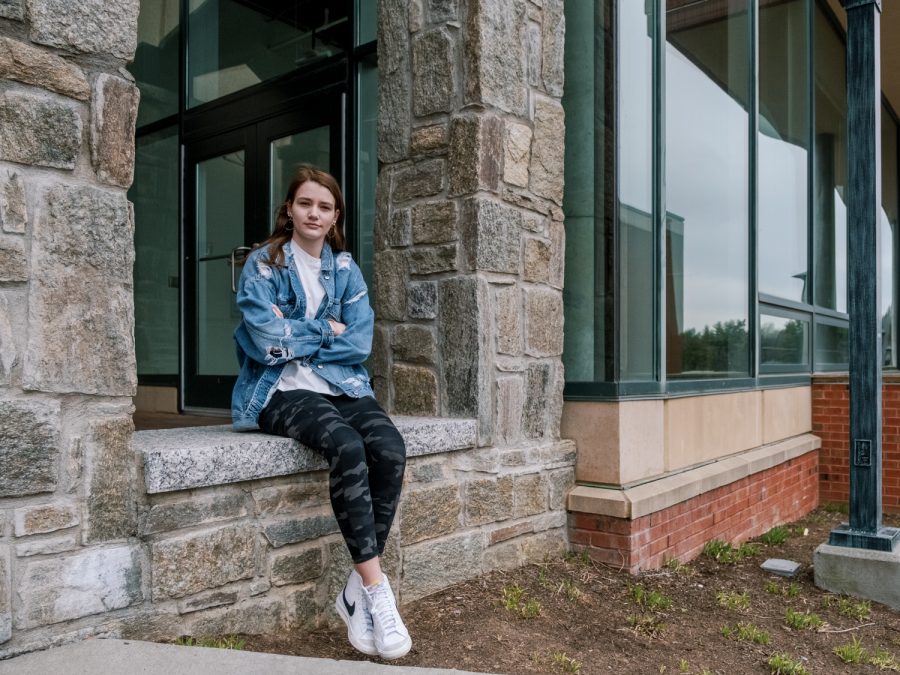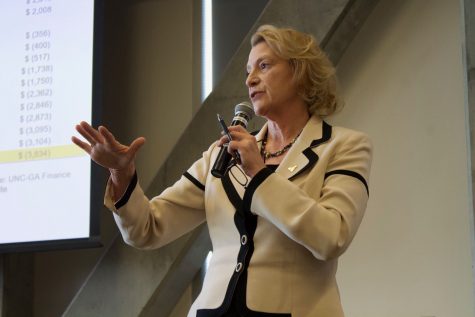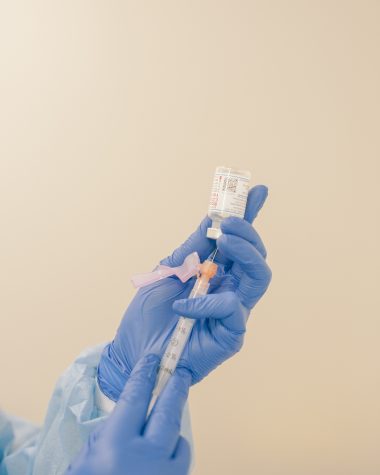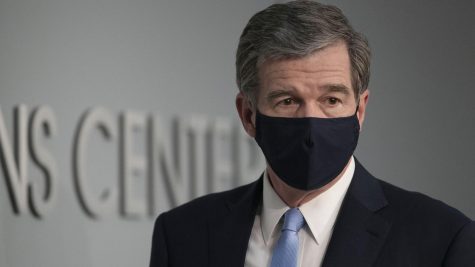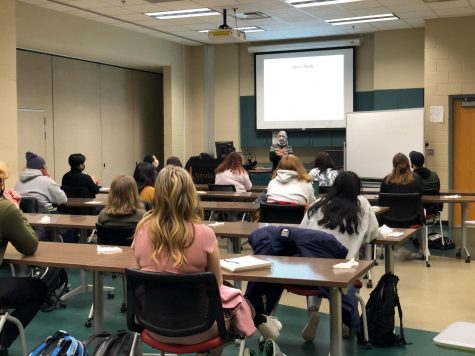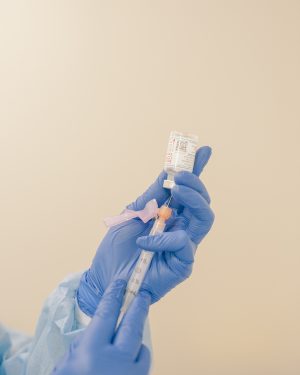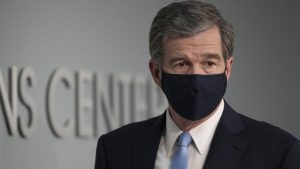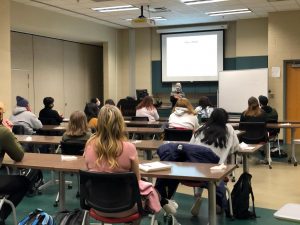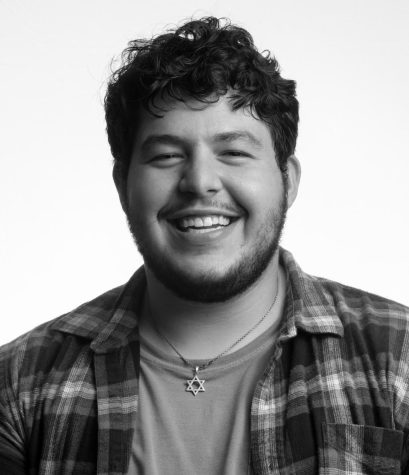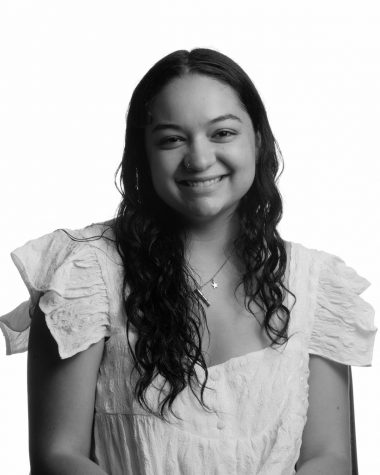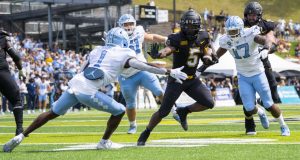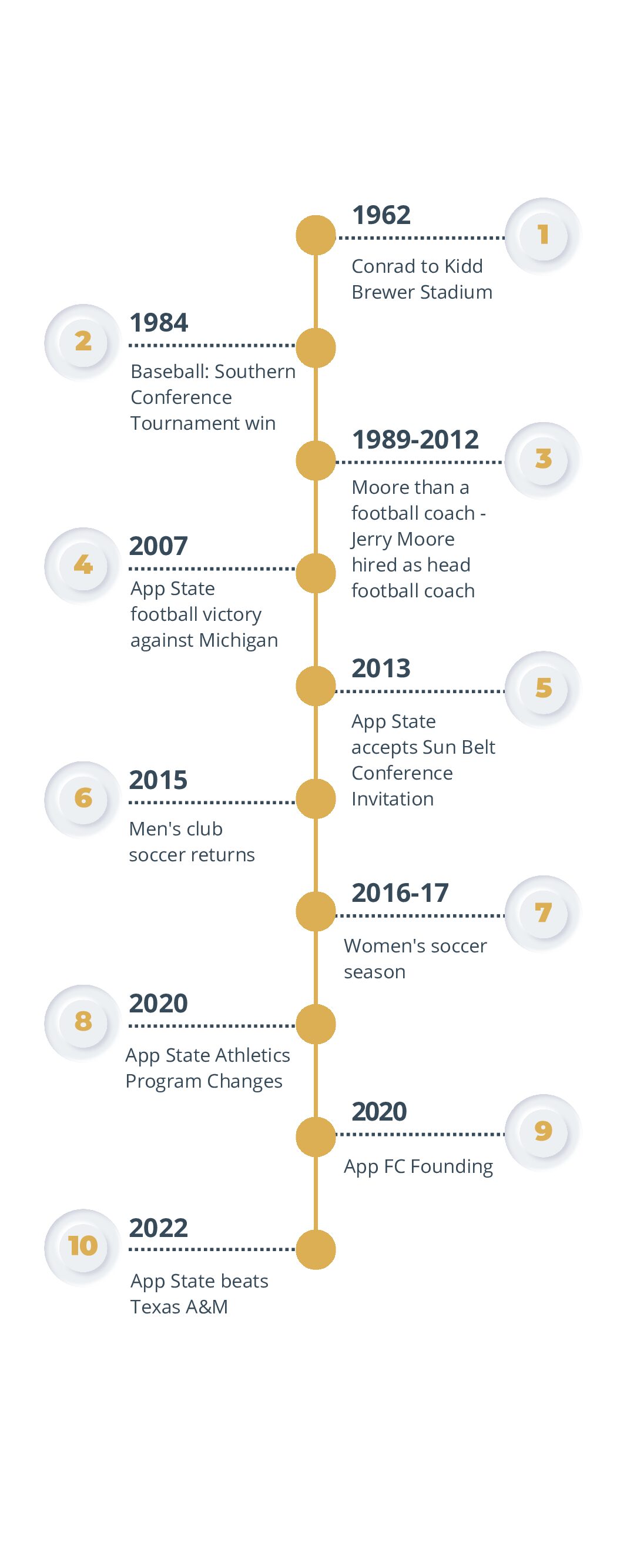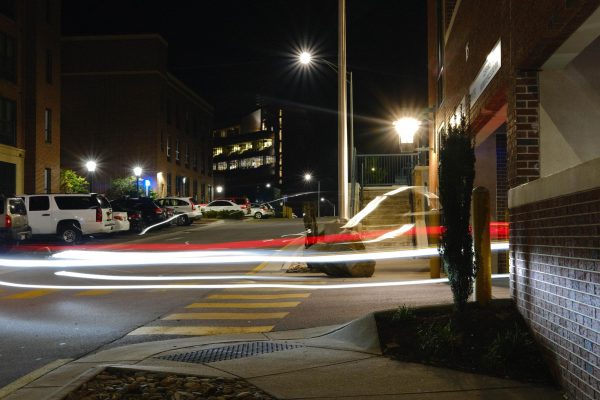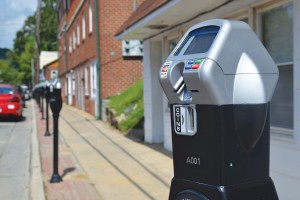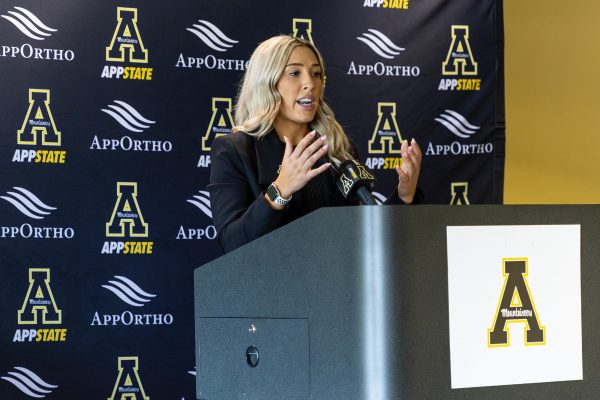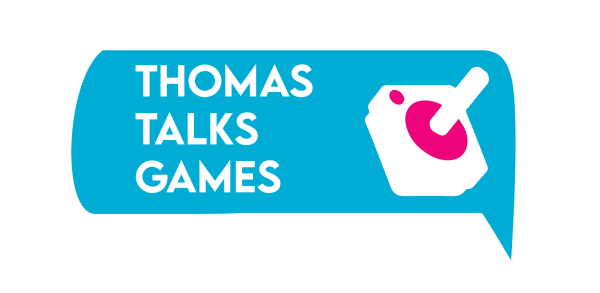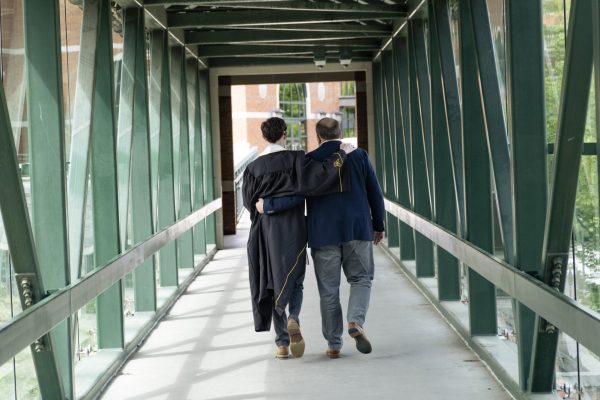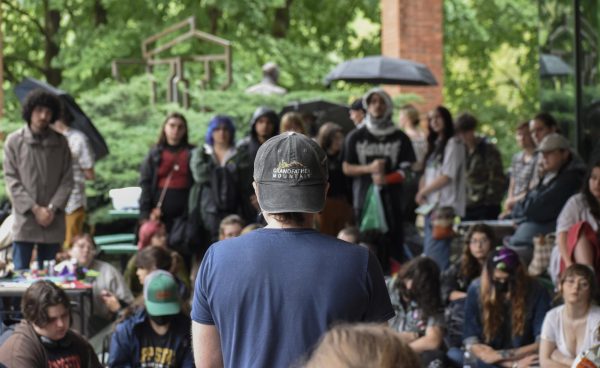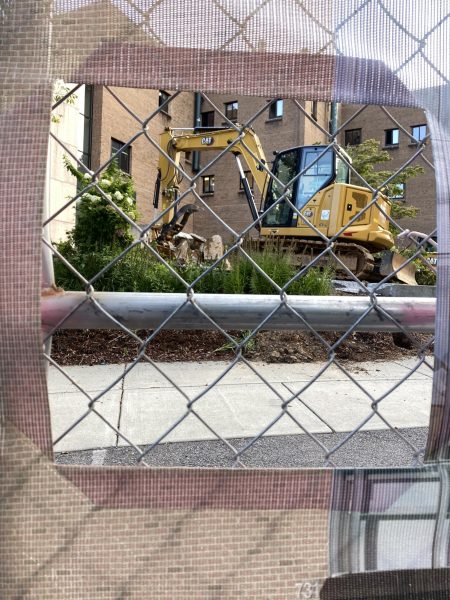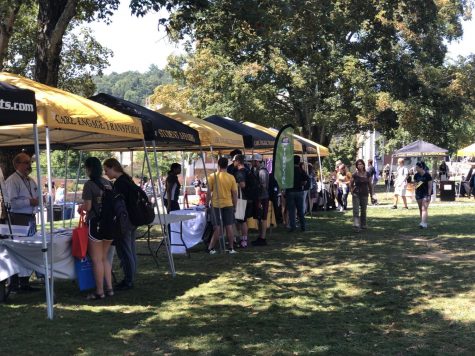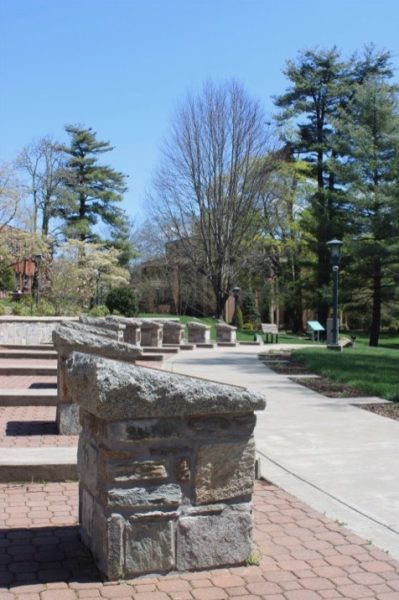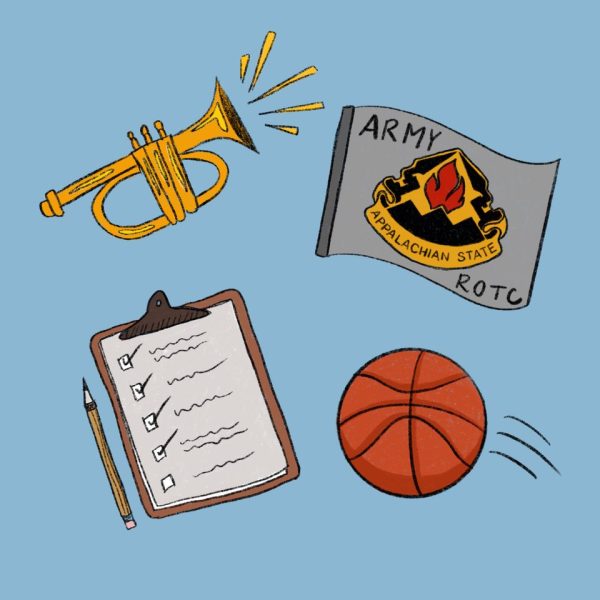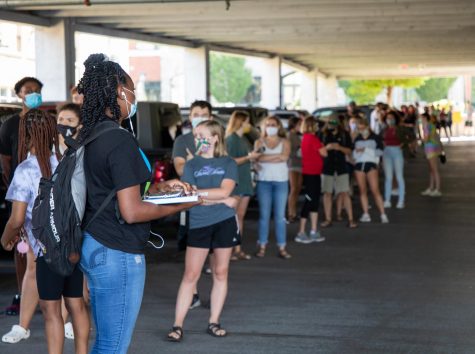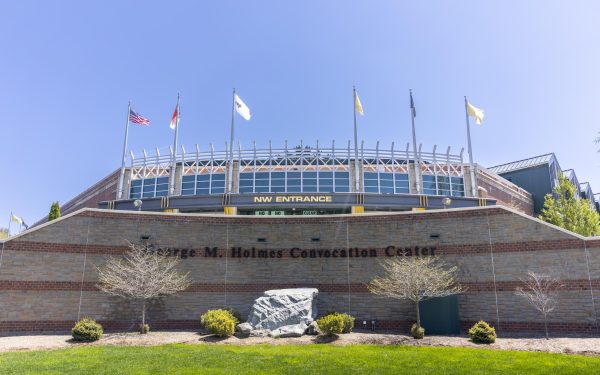Students on campus closer to college experience without COVID restrictions
Lillian Schriner, a freshman, poses outside of Summit Hall. Schriner, along with students living in University Housing, are eligible to receive the COVID-19 vaccine.
March 19, 2021
On-campus students will be eligible to receive a free COVID-19 vaccine through the university starting April 7.
An individual in a congregate living setting, like a residence hall, falls under Group 4 of North Carolina’s vaccine distribution plan. While Group 4 became eligible for the vaccine on March 17, on-campus students are eligible April 7, when phase two of Group 4 begins.
App State held their first COVID-19 vaccination clinic March 11 and 12 where 680 people got a vaccine.
Dr. Rochelle Walensky, director of the Centers for Disease Control and Prevention, announced March 8 that fully vaccinated individuals can gather indoors without masks.
This move could have a dramatic impact on App State students, especially freshmen who have never experienced college life without COVID-19.
“I have missed out on meeting new people, going to sport events, joining clubs, in-person classes, etc.,” said Lillian Schriner, a freshman in Bowie Residence Hall.
Schriner said she and her peers getting a COVID-19 vaccine will “relieve some stress” and give Shriner peace of mind when she is around people she doesn’t know.
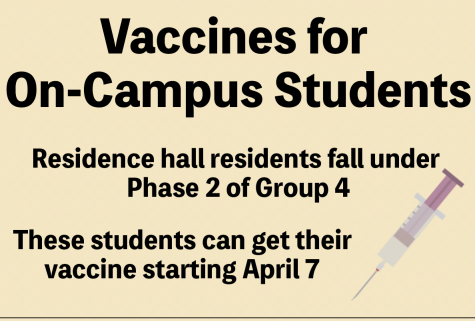
CDC guidance dictates that vaccinated individuals should only gather two weeks after they receive their second dose of the Moderna or Pfizer or two weeks after their only dose of the Johnson & Johnson vaccine.
Carson Scott, a freshman in Gardner Residence Hall, said it is irresponsible to not get a COVID-19 vaccine.
“If everyone was vaccinated we would have much more social freedoms and a more relaxed environment around campus at least,” Scott said.
Scott, however, does not see life immediately going back to normal and expects restrictions to continue for some time.
Since March 27, 2020, App State has had 1,810 cases of COVID-19, as of March 19.
As of March 19, North Carolina has had 891,314 cases of COVID-19. The 7-day rolling average in North Carolina has been trending downward in the last month; 13.2% of the state is fully vaccinated and 20% of the state is at least partially vaccinated.
Even with its new guidance, the CDC says people should continue to wear masks in public, social distance and avoid crowds until they know more.
Paige Davis, a freshman, has in-person classes, spends time in Plemmons Student Union and feels safe being on campus. However, she wishes she could have experienced game days in The Rock’s student section.
Davis doesn’t expect COVID guidelines to change this year but is eager for the peace of mind that comes with being vaccinated. She’s also ready to see her family again.
“I got the Moderna COVID vaccine at Walgreens in hopes of being able to have some more freedom and hopefully visit my sister in London when allowed,” Davis said.
Jason Marshburn, director of Emergency Health, Safety and Emergency Management at App State, is “prepared to continue holding vaccination clinics.”
“The one unknown is when the university will receive additional vaccines,” Marshburn wrote in an email. “NCDHHS manages vaccine distribution in NC, and determines the type, quantity, and delivery dates of vaccines to each vaccination site throughout the state.”
Marshburn said App State regularly requests additional vaccines but they have not heard when additional doses will arrive. The North Carolina Department of Health and Human Services contacts vaccine sites at the beginning of each week, he said. So App State will likely know more after March 21.

